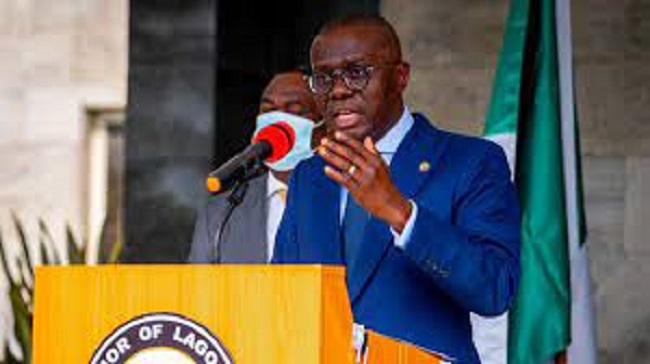Lagos State Governor, Mr Babajide Sanwo-Olu, has said that the economic prosperity recorded by the state over the last two decades has shown the strength and potential which any sub-national government can offer in shaping the African growth narrative, disclosing that the state GDP, in the last five years under his administration, had risen by almost 50 per cent, surpassing the size of the GDPs of over 40 African countries.
Governor Sanwo-Olu made this assertion in his closing speech at the ongoing 3rd AfriCaribbean Trade and Investment Forum (ACTIF 2024) in Nassau, as he addressed a large range of audience from Africa and Caribbean countries on the theme: “Global Africa, Global Lagos: The Role of Sub-Nationals in Driving the Global African Agenda.”
Former Vice President, Yemi Osinbajo and chairman of Dangote Group, Alhaji Aliko Dangote, were among the global delegates attending the conference held simultaneously with the 31st Afreximbank Annual Meetings.
The governor argued that with a strong focus on internal revenue generation and strategic partnerships with the central government and private investors, the state had demonstrated how a focused leadership at the sub-national level could re-work a nation’s economic vision to create a sustainable growth pathway for the continent.
According to him, Lagos had grown from being a state in deficit in the military era to becoming a hub for investment and technological advancements, noting that the GDP of Lagos, in the last five years under his administration, had risen by almost 50 per cent, surpassing the size of the GDPs of over 40 African countries.
He said that the responsible factors could be linked to the unending effort by the state government to improve the ease of doing business and the decision to leverage the technology and entrepreneurial abilities of its population for economic activities.
“Lagos is an example of a unique African success story, shaped by an interesting mix of advantages and challenges. It is the smallest of Nigeria’s 36 states, yet is responsible for more than a third of Nigeria’s entire GDP.
“Lagos has grown to have a GDP that is greater than the GDPs of all but seven African countries. In the last five years, under my leadership, we have seen an almost 50 per cent increase in our GDP.
“Lagos presents a significant context on how sub-national governments are vital in writing new stories of development and advancing the economic agenda of the continent. I am proud to say that we in Lagos State have indeed mastered the art and science of Public-Private Partnerships (PPPs). Having pioneered this private sector-led development in Lagos, we are now exporting that template to other states across the country,” the governor said.
“Our growth stories speak to the importance of African solutions and African capacity for tackling African problems. As we work towards accomplishing our aspirations, it is clear that sub-sovereign entities, such as cities, states, provinces, regions, and municipalities, can be instrumental in translating African countries’ high-level goals into tangible outcomes. It is at this sub-national level that a lot of the most remarkable reforms and transformations are playing out,” the governor added.
Governor Sanwo-Olu illustrated how a set of locally envisioned economic ideas transformed Lagos to be the most viable state in the country, stressing that the state created a new economic city from a challenging environmental crisis.
He said the Eko Atlantic City project, which had since then become a global model for environmental responsiveness and climate action, was one of the five key long-term initiatives developed by his predecessor, ex-Governor Bola Ahmed Tinubu, now President Tinubu, to create new economic opportunities for Lagos.
He listed other initiatives including the establishment of the Lekki Free Trade Zone, construction of the Lekki Deep Seaport, building of the 10-lane West African Border Highway, construction of intra-city rail infrastructure and leveraging the entrepreneurial spirit of young people, saying that all these had led towards building a resilient economy for the state.
“We have leveraged the power of the young people in driving creativity, innovation, and digital connectivity, which are critical pillars for economic prosperity. Lagos has, in the last decade, become a globally renowned hub for digital technology and innovation, and this is because of our young people, their energy, talent and enthusiasm.
“Through this, we have minted a number of fintech unicorns, like Interswitch, Paystack and Flutterwave. This ferment of innovation has not happened by chance. Even as they have been driven by immensely talented and entrepreneurial Nigerians, successive administrations in Lagos have paid close attention to these ecosystems, and worked to ensure an enabling environment, through various policies and incentives,” he said.
Sanwo-Olu, in addition, equally shared the landmark gains resulting from the adoption of the African Continental Free Trade Area (AfCFTA), describing the trade initiative as a “historic, revolutionary idea” seeking to unlock the full potential of free trade areas being created across Africa.
